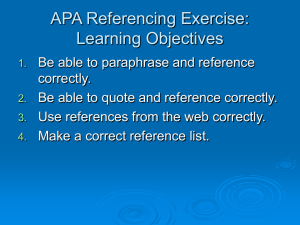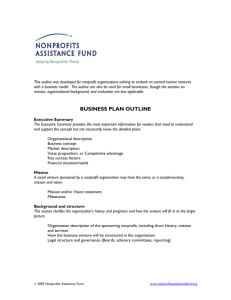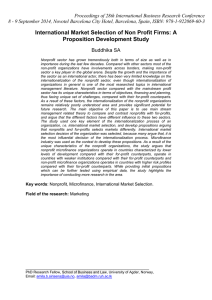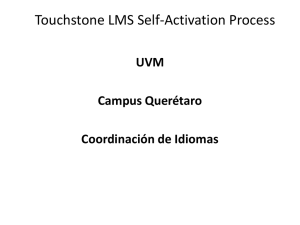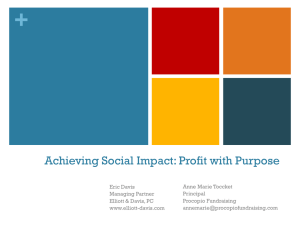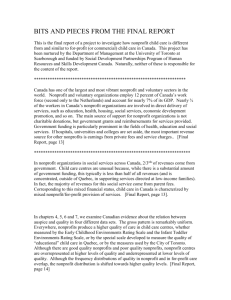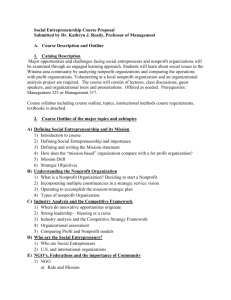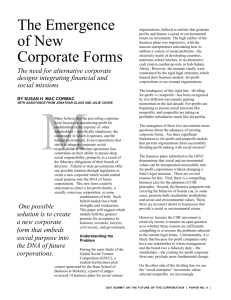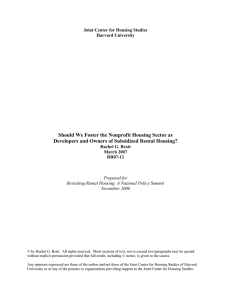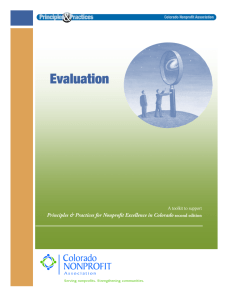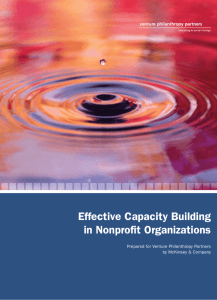WHAT IS PROGRAM EVALUATION? Written by Carter McNamara
advertisement
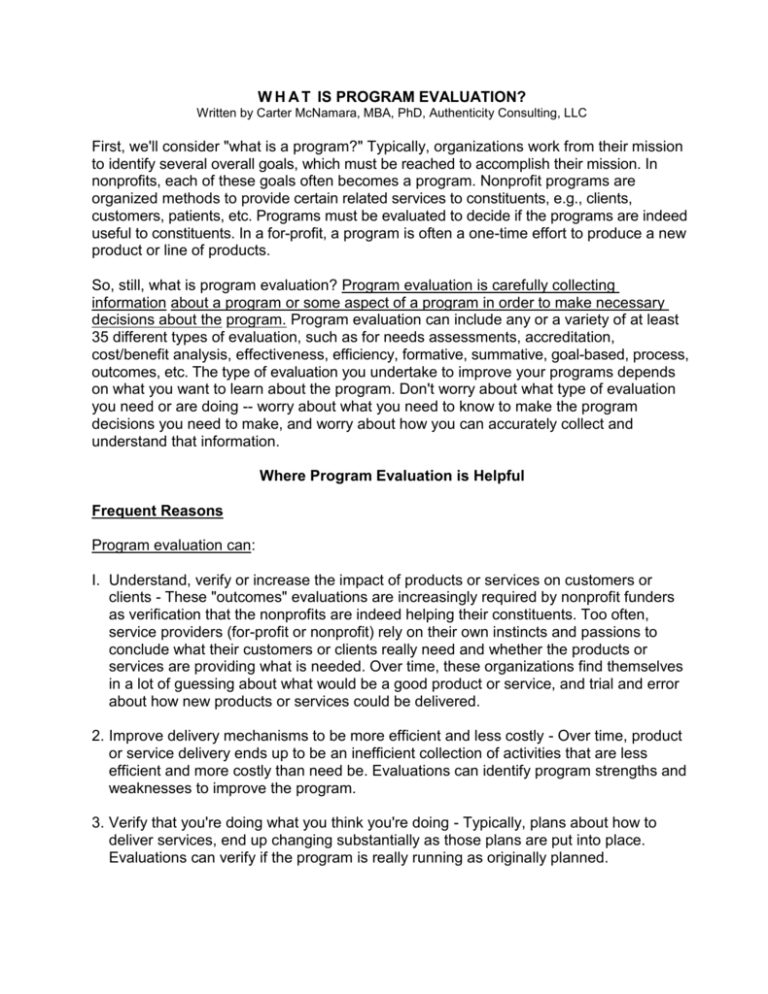
W H A T IS PROGRAM EVALUATION? Written by Carter McNamara, MBA, PhD, Authenticity Consulting, LLC First, we'll consider "what is a program?" Typically, organizations work from their mission to identify several overall goals, which must be reached to accomplish their mission. In nonprofits, each of these goals often becomes a program. Nonprofit programs are organized methods to provide certain related services to constituents, e.g., clients, customers, patients, etc. Programs must be evaluated to decide if the programs are indeed useful to constituents. In a for-profit, a program is often a one-time effort to produce a new product or line of products. So, still, what is program evaluation? Program evaluation is carefully collecting information about a program or some aspect of a program in order to make necessary decisions about the program. Program evaluation can include any or a variety of at least 35 different types of evaluation, such as for needs assessments, accreditation, cost/benefit analysis, effectiveness, efficiency, formative, summative, goal-based, process, outcomes, etc. The type of evaluation you undertake to improve your programs depends on what you want to learn about the program. Don't worry about what type of evaluation you need or are doing -- worry about what you need to know to make the program decisions you need to make, and worry about how you can accurately collect and understand that information. Where Program Evaluation is Helpful Frequent Reasons Program evaluation can: I. Understand, verify or increase the impact of products or services on customers or clients - These "outcomes" evaluations are increasingly required by nonprofit funders as verification that the nonprofits are indeed helping their constituents. Too often, service providers (for-profit or nonprofit) rely on their own instincts and passions to conclude what their customers or clients really need and whether the products or services are providing what is needed. Over time, these organizations find themselves in a lot of guessing about what would be a good product or service, and trial and error about how new products or services could be delivered. 2. Improve delivery mechanisms to be more efficient and less costly - Over time, product or service delivery ends up to be an inefficient collection of activities that are less efficient and more costly than need be. Evaluations can identify program strengths and weaknesses to improve the program. 3. Verify that you're doing what you think you're doing - Typically, plans about how to deliver services, end up changing substantially as those plans are put into place. Evaluations can verify if the program is really running as originally planned. Other Reasons Program evaluation can: 4. Facilitate management's really thinking about what their program is all about, including its goals, how it meets it goals and how it will know if it has met its goals or not. 5. Produce data or verify results that can be used for public relations and promoting services in the community. 6. Produce valid comparisons between programs to decide which should be retained, e.g., in the face of pending budget cuts. 7. Fully examine and describe effective programs for duplication elsewhere.
